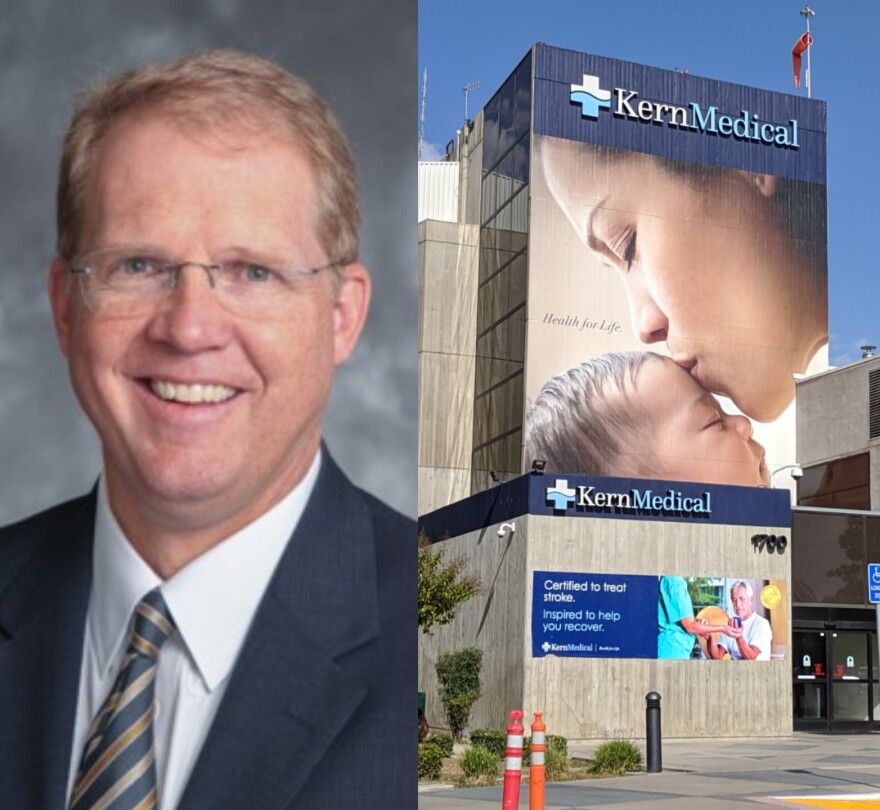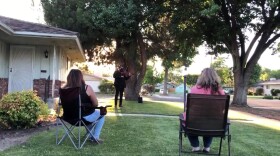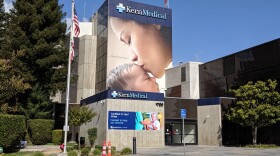As COVID-19 case counts rise across California, prompting a new wave of business closures from Governor Gavin Newsom,hospitals are slowly approaching their capacities. Although Bakersfield’s Kern Medical is currently nearing as many patients as it can handle, it has plans to expand.
Last week, Kern Medical CEO Russell Judd estimated that around 90 percent of his hospital beds were occupied. He considers that full, however, because the hospital is short on the staff needed to serve the remaining beds. “We are at capacity,” he says. “We do not have enough patient beds that are staffed by nurses to cover all the patients that need admitting, so we’re holding patients in our emergency department while we’re waiting for people to be discharged.”
TheCalifornia Department of Public Health and county health departments provide some data on hospital and ICU occupancies. However, calculating the total number of beds at each hospital, and resulting hospital capacity, can be complicated since many beds—like those in psychiatric wards, labor and delivery units or pediatric ICUs—cannot be used for the infectious, typically adult COVID-19 patients. Of Kern Medical’s 222 licensed beds, Judd estimates that only around half are suitable for treating patients with the virus. “So to some degree some of the data that gets collected by the state is really not applicable to the disease we’re facing,” he says.
Judd asserts, however, that Kern Medical will be ready for a surge. Hospitals in general are designed to handle fluctuating patient loads, he says, but the hospital is also signing contracts now with traveling nurses who’d arrive later in the summer. He also plans to apply for provisional licenses for enough beds to bring the hospital as much as 40 percent above its current capacity. “If [COVID-19] levels off, if we’ve got a great turnaround in this disease, hallelujah, we don’t need to exercise our plans,” he says. “But we are planning to be well above capacity and being able to handle it come middle of August, first of September.”
As of July 13, hospitals in the San Joaquin Valley were reporting731 patients with COVID-19 in medical beds and 135 in intensive care units (ICUs), marking a Valley-wide rise of 46 percent and 21 percent in those two types of units in just the past two weeks.
In that same time period, health officials across the Valley have begun expressing alarm about hospital capacities. “This is an area we are now starting to track closely,” said Kern County Director of Public Health Services Matt Constantine duringa call with the media on July 9, agreeing that staffing was the limiting factor in providing more patient beds. “As we see hospitalization numbers slowly growing and our cases slowly growing, we need to be in a position to make sure that we have not only the beds available but the staffing available.”
On the same call, Constantine mentioned that Mercy Hospital in downtown Bakersfield had been so inundated with patients earlier in the week that for a number of hours, ambulance traffic had been diverted to other hospitals.
“The storm has definitely hit,” said Dr. Patil Armenian, an emergency room physician at Community Regional Medical Center in downtown Fresno, who described an outdoor tent for screening patients and telemedicine between patient rooms as ways to expedite COVID-19 care and protect healthcare workers’ safety. As a part of its “surge crisis protocol,” the hospital’s umbrella organization, Community Medical Centers, has begun postingdata about the number of patients and employees diagnosed with COVID-19 or awaiting test results throughout its four hospitals.
Rising occupancy is “not just a hospital issue, it’s a community issue,” said Fresno County Interim Health Officer Dr. Rais Vohrain a press call on June 10. “It basically means that the level of care that’s delivered is under threat for any condition that you have that lands you in the hospital.”





